Britain promised to take in these Syrian families. Instead, they’re scavenging through bins to survive
Special Report: As ministers condemn those crossing the Channel by boat, they say refugees should look to safe legal routes to reach our shores. But hundreds told they could have sanctuary as long ago as 2018 are still waiting, living in increasing desperation in a country whose economy has collapsed. Today they’re asking: why has the UK abandoned us? Bel Trew and May Bulman report

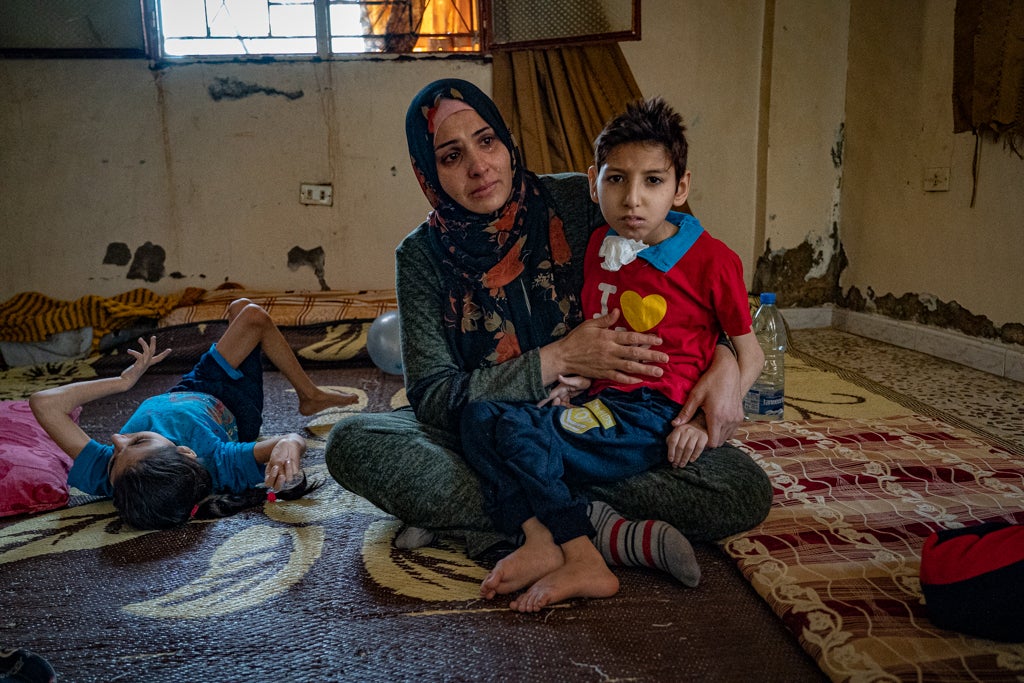
Your support helps us to tell the story
From reproductive rights to climate change to Big Tech, The Independent is on the ground when the story is developing. Whether it's investigating the financials of Elon Musk's pro-Trump PAC or producing our latest documentary, 'The A Word', which shines a light on the American women fighting for reproductive rights, we know how important it is to parse out the facts from the messaging.
At such a critical moment in US history, we need reporters on the ground. Your donation allows us to keep sending journalists to speak to both sides of the story.
The Independent is trusted by Americans across the entire political spectrum. And unlike many other quality news outlets, we choose not to lock Americans out of our reporting and analysis with paywalls. We believe quality journalism should be available to everyone, paid for by those who can afford it.
Your support makes all the difference.The Syrian refugee family is so desperately poor that this week they resorted to digging through bins to find food. Sitting in a tiny flat in the Lebanese capital of Beirut, Salma, 49, explains that her family of five has not eaten meat in two years and they frequently faint from hunger. She opens their fridge: it is stocked only with rotten fruit, the spoils of yesterday’s scavenging session.
After her husband was killed in heavy bombing on their home city of Aleppo in 2014, Salma fled with her children to Lebanon, which has this year suffered one of the worst economic collapses in modern history. The rate of inflation has outstripped Venezuela and Zimbabwe, and subsidies have been cut, which has seen food prices more than quadruple and the cost of medicines go up sixfold.
It means Salma cannot feed her malnourished children or afford medical treatment for her eldest daughter Aya, 24, who suffers from severe mental illness and cannot speak or feed herself. Six months late on their rent payments, they are now facing imminent eviction.
But Salma’s family is not supposed to be in this position. As the British government condemns refugees who cross the Channel by boat in an attempt to reach the UK, ministers say they should instead apply from abroad through safe, legal routes. In the wake of last week’s tragic drownings, Priti Patel highlighted the government’s resettlement programmes in the House of Commons, including for Syrian refugees, telling MPs Britain needed to “do the right thing for people who are fleeing persecution”.
Salma applied for resettlement and, in 2018, the British government agreed to resettle the family in the UK, a process that was meant to take only a few months. Nearly four years later, there has been no apparent progress.
In fact, Salma and her family are among 460 Syrian refugees in Lebanon – and more than 2,000 worldwide – who were accepted by the UK’s resettlement programme but according to the United Nations are still awaiting transfer several years on. Instead, they are trapped in a deteriorating situation that rights groups have called “disgraceful” and “potentially dangerous”.
“We don’t know what the hold-up is, why they have abandoned us. We can’t take it anymore,” Salma says in tears, as she explains how she cannot even afford the incontinence pads for her disabled daughter and so is forced to use rags.
“I am on the edge of collapse. There is no work, no job opportunities, no food, and soon maybe no home.
“Sometimes I wish I had died in that airstrike which killed my husband instead of living this hell.”
The children frequently faint from hunger, and so sometimes I’m forced to dig through the garbage to find them food
Across town in a dilapidated southern neighbourhood, another Syrian refugee family of five was also promised resettlement in the UK in 2018.
Like Salma, Hanan and her family had a Skype call that year with a representative from the British government who told them resettlement would take just four months.
More than three years on, Hanan cannot stop crying as she clutches her son Firas, who has cerebral palsy and is so thin he looks skeletal. Her daughter, Batool, who also has the condition, lies writhing on her back.
“I am on the verge of a complete mental breakdown. I don’t understand, it has been years since they promised us,” the 32-year-old says, describing how the family has to beg friends for money to pay for her children’s life-saving medicine. “Why has the UK given us hope and then abandoned us?”
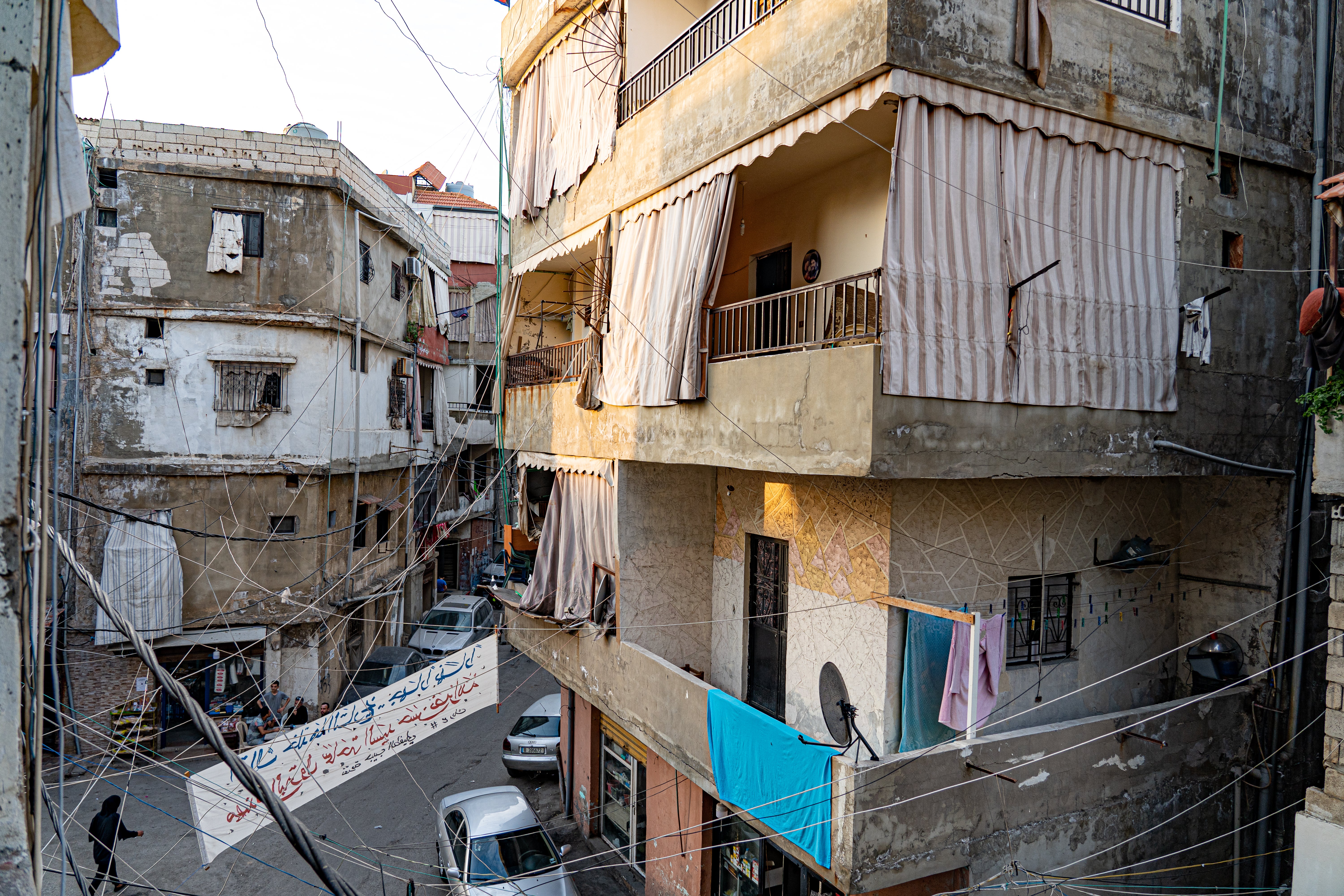
There are refugees across Lebanon, Egypt, Turkey, Jordan and Iraq who have been approved for resettlement by the British government but are stuck in limbo as their living conditions drastically deteriorate.
The delays have partly been caused by the pandemic, which shut down travel. But questions have arisen over why the resettlement of these families is taking so long now that the world has largely opened up again.
While some families have been transferred after British lawyers intervened, it is unclear how long it will take for all of these refugees to be moved – or whether they will be resettled in the UK at all.
The UK’s Vulnerable Persons Resettlement Scheme, which ended in March this year, committed to welcoming 20,000 refugees from Syria between 2015 and 2020. It was replaced in February by the UK Resettlement Scheme (UKRS), which originally pledged to resettle 5,000 refugees from countries such as Syria, Afghanistan and Sudan in its first year.
But the Home Office scrapped the target this year and said the numbers would instead be “kept under review”, causing concern among UK charities, lawmakers and the United Nations refugee agency (UNHCR). Statistics show just 770 people have been resettled through the UKRS in the year to September, with Britain taking 1,171 under all its schemes.
Read more special reports from our Supporter Programme
The Home Office declined to speak about specific cases but told The Independent that the UK “has a long history of supporting refugees in need of protection”. A spokesperson said Britain has resettled more than 25,000 refugees since 2015 and was “committed” to the UKRS.
“The number of refugees we resettle every year depends on a variety of factors including local authorities’ capacity for supporting refugees and continued recovery from the pandemic,” the spokesperson said.
But UN officials believe that not enough has been done and sounded the alarm, saying that thousands of refugees had been left with their lives “effectively on hold”.
“These are refugees whom we have identified as particularly vulnerable,” UNHCR spokeswoman Laura Padoan tells The Independent.
“Many of them are living in very precarious situations – some are in overcrowded and derelict housing and other families are relying on their children to work to support them. It’s critical that they can come to the UK without any further delay.”
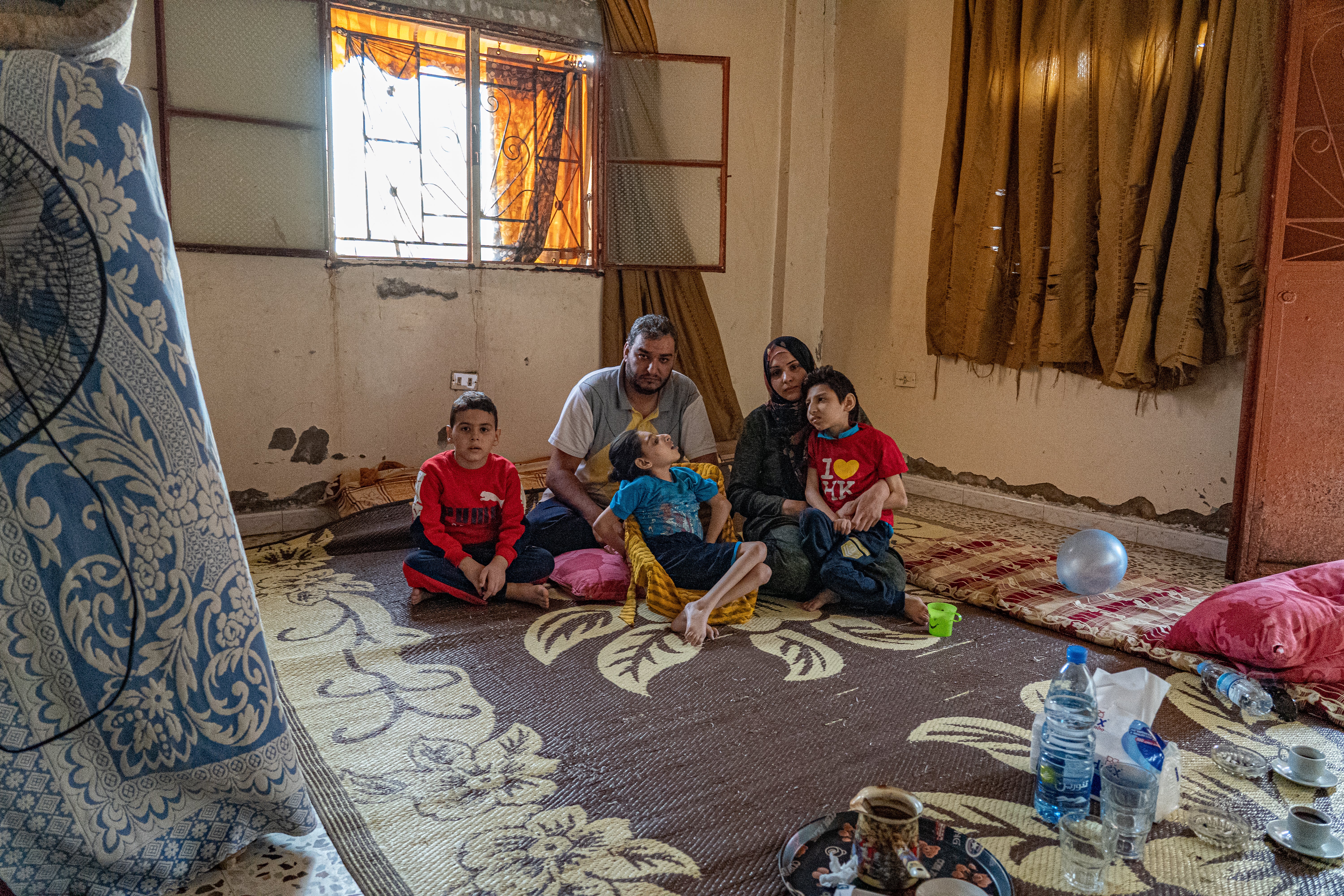
Nearly a quarter of these refugees are in Lebanon, a country that rights groups say is one of the toughest environments for those who have fled conflict because of the unprecedented economic collapse.
The onset of the Covid-19 pandemic last year only accelerated the tailspin, as did a massive blast at Beirut’s port last August, which killed 200 people and destroyed swathes of the capital.
Since last year the Lebanese currency has lost over 95 per cent of its value, sending food prices soaring. The cash-strapped government has been forced to remove hefty subsidies, meaning the cost of medicines and petrol has gone up five or sixfold. It also cannot afford to buy fuel for its power plants, leaving most households with just two hours of state-provided power a day.
UN officials told The Independent in July that 99 per cent of the million Syrian refugees in Lebanon now live below the extreme poverty line, meaning that, like Salma and Hanan’s families, they have no food and cannot afford to eat.
The severity of the situation prompted the UN to warn this year that Lebanon was at risk of famine. With conditions worsening and with no update from the British government, Syrian refugees have had to rely on charities and affiliated law firms to lobby for them.
Hannah Baynes, of Duncan Lewis Solicitors, has had 10 Syrian refugee families referred to her in recent months, most of them living in Lebanon.
Baynes has secured resettlement for five families after pursuing legal action, but fears that the problem is “more widespread” than the cases she has seen. She urged the UK to take urgent action to process and move the families.
“We are concerned that the situation is only getting worse as the economic and political situation in Lebanon continues to deteriorate,” Baynes says. “Whilst we recognise that the pandemic has caused unavoidable delays, it seems that since the borders were reopened, these families have been forgotten.
In the meantime, the refugees are left to fend for themselves.
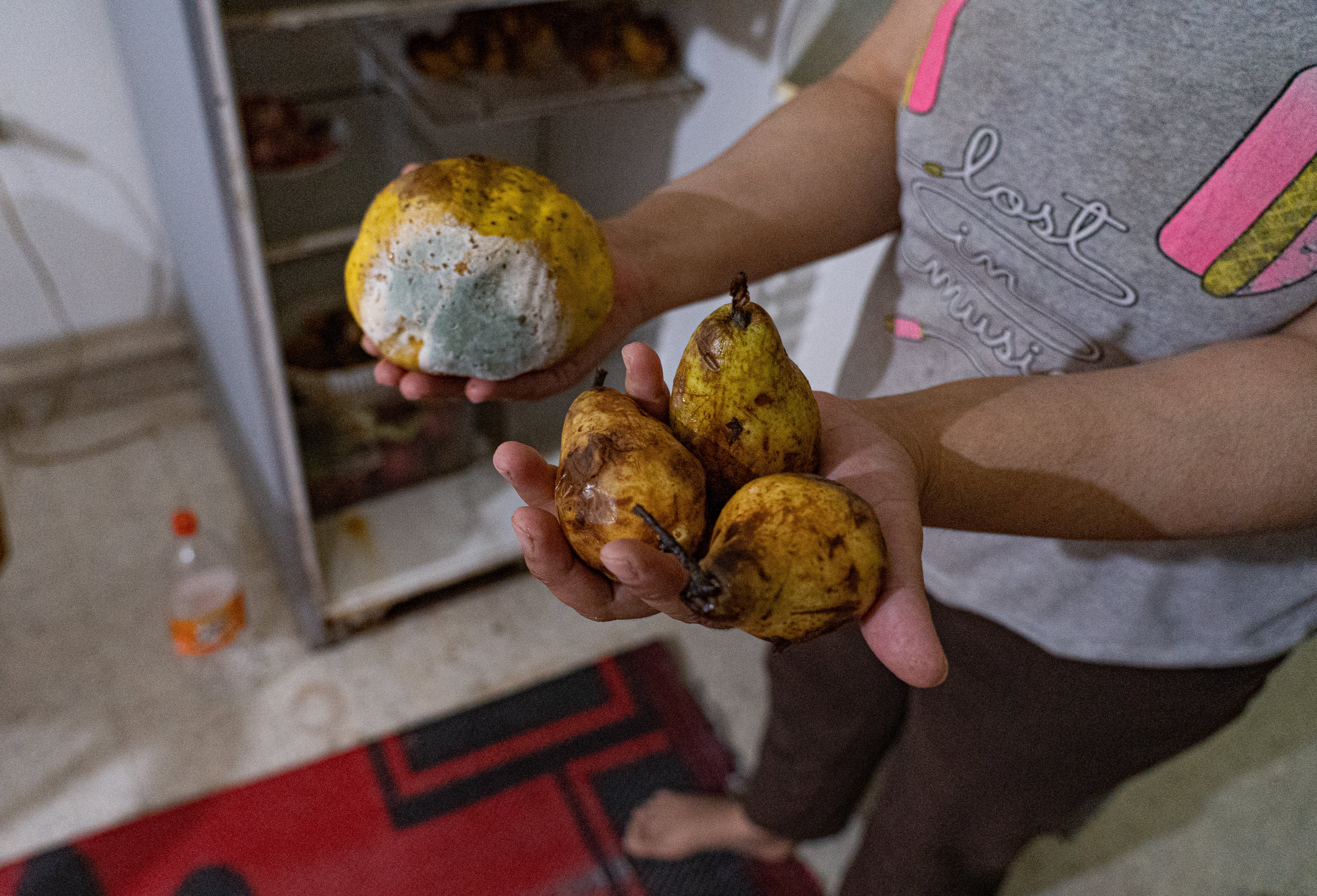
Salma’s family says the most pressing issue is keeping a roof over their head. Neither Salma nor her new husband Bassam, 42 who is also a Syrian refugee, can find formal work as their documents were confiscated by the authorities after they expired: a common problem for refugees in Lebanon.
Bassam works odd jobs when he can but this month has only managed to earn just 200,000 lira (£6.50). The family is six months behind on rent and facing their third eviction since fleeing to Lebanon seven years ago.
“The children frequently faint from hunger, and so sometimes I’m forced to dig through the garbage to find them food. And now we are likely to be kicked out of our home,” Bassam tells The Independent, admitting he has started to feel suicidal.
“The UK promised us they would give us home but they have abandoned us. How could they cruelly give us false hope?”
In southern Beirut, Hanan explains that they must rely on charity to buy the life-saving medicines for her children.
A monthly supply costs the equivalent of £60, which is double the monthly earnings of Hanan’s husband Omar. The family regularly survives on just vegetable oil and zaatar, a dried herb mix.
“We get two hours of electricity a day which is not enough to keep us warm, there are holes in the wall of the building, and I do not have warm clothes for the children,” Hanan says, as winter approaches.
Omar says the UN gave them a few months worth of coupons they can spend in supermarkets but has otherwise ignored them.
“I work 14 hours a day and I feel dead but I don’t want to rely on someone or handouts. I want to feel human – nothing less and nothing more” he says in despair.
“The conditions are so bad I worry my children will die like this. What did we do to deserve this?”
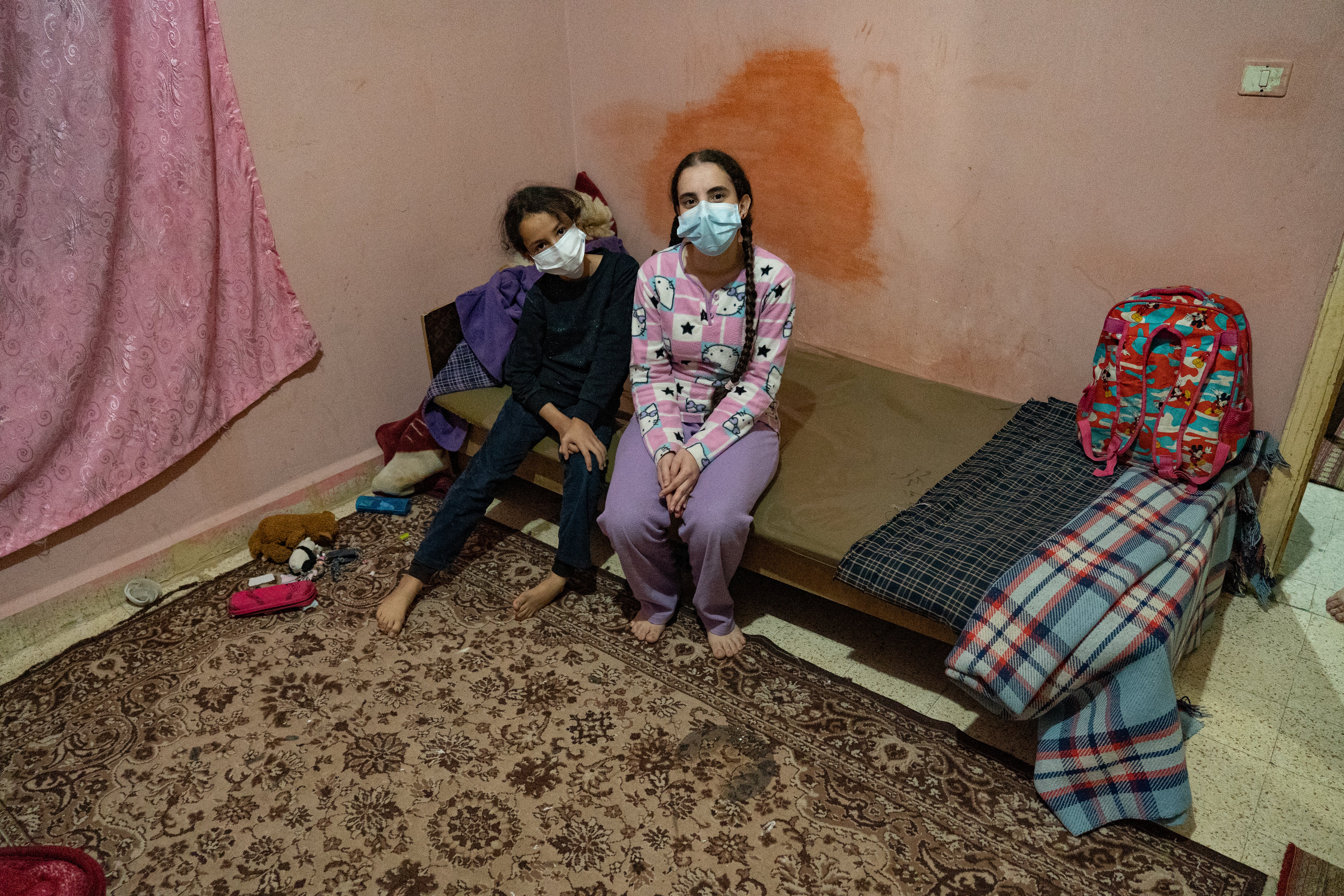
The desperation is not only felt by the refugees in Lebanon.
Lebanese citizens are also struggling to put food on the table and to keep a roof over their heads, which has translated into anger against the refugee population who intermittently have access to support from organisations such as the UN. Hanan’s family said it has suffered racist attacks.
Katrin Hermanek of Border Free, a Swiss NGO based in Lebanon, warns that refugees are vulnerable to massive exploitation.
“Some of them haven’t received a salary in more than a year. It’s definitely a case of modern slavery,” she says. “They’re working day in, day out, but they don’t really have any alternative.”
The situation is so bleak that some refugees even told The Independent they were contemplating moving back to Syria, where war rages on.
Nadia Hardman from Human Rights Watch says the group has found refugees who return to Syria face persecution at the hands of the Syrian government and affiliated militias, including torture, extra-judicial killings and kidnappings.
“The levels of debt that Syrian refugees in Lebanon are entering into are huge, they are unable to pay rent, to afford housing. The increasing rate of inflation is making life impossibly expensive. What we don’t want to see is people making the decision to go back to Syria, it is not safe,” Hardman added.
Back in Beirut, the families make desperate and futile visits to the UN offices and anxiously wait for a phone call or letter.
“Many Syrian refugees have set themselves on fire due to the economic social situation,” Salma says despairingly, as her daughter Aya becomes visibly upset by her tears.
“I can’t even afford the nappies for my daughter or food. I’m afraid of a winter without food, clothes, blankets or electricity. We cannot survive this.”



Join our commenting forum
Join thought-provoking conversations, follow other Independent readers and see their replies
Comments